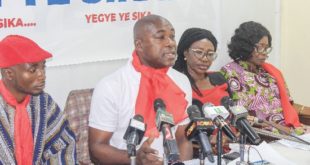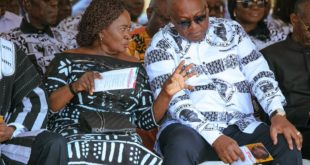A loan deal between Côte d’Ivoire and the International Monetary Fund (IMF) has been authorized for US$3.5 billion.
The three-year program aims to address monetary issues and support economic transformation.
According to a statement released by the IMF on May 24, Côte d’Ivoire will get close to $500 million right away.
Additional funding will be contingent on Côte d’Ivoire changing the structure of its economy, according to the IMF.
According to the statement, the loan will assist the nation in coping with the triple shocks of the COVID pandemic, the tightening of global monetary conditions, and Russia’s invasion of Ukraine.
The Executive Board of the International Monetary Fund (IMF) approved 40-month arrangements under the Extended Fund Facility (EFF) and the Extended Credit Facility (ECF) for Côte d’Ivoire in the amount of SDR 2,601.6 million (equivalent to 400 percent of quota or about US$3.5 billion).
The program is consistent with the authorities’ 2021-25 national development plan (NDP) and aims to maintain macroeconomic stability in the near term while laying the foundation for deeper economic transformation towards upper middle-income status over the medium term. The program will also help Côte d’Ivoire raise its contribution to the regional international reserves pool.
The Executive Board’s decision enables an immediate disbursement of SDR 371.7 million (US$495.4 million), which the Ivorian authorities intend to use for budget support.
Côte d’Ivoire is dealing with worsening macroeconomic imbalances as a result of three shocks: the pandemic, the negative effects of Russia’s war in Ukraine, and the tightening of the global monetary system.
The government is committed to advancing its agenda to support growth that is led by the private sector and is inclusive, as well as to strengthen fiscal consolidation efforts, particularly through domestic revenue mobilization supported by proactive measures and a thorough medium-term revenue strategy to ensure the means to its ambitious social and capital investment program.
By enhancing governance, expanding financial inclusion, investing in human capital, and boosting resilience to climate change, key structural reforms seek to significantly improve the business climate.
Source: Ghanatodayonline.com
 Ghanatodayonline.com News, Politics, Health, Education & More
Ghanatodayonline.com News, Politics, Health, Education & More



